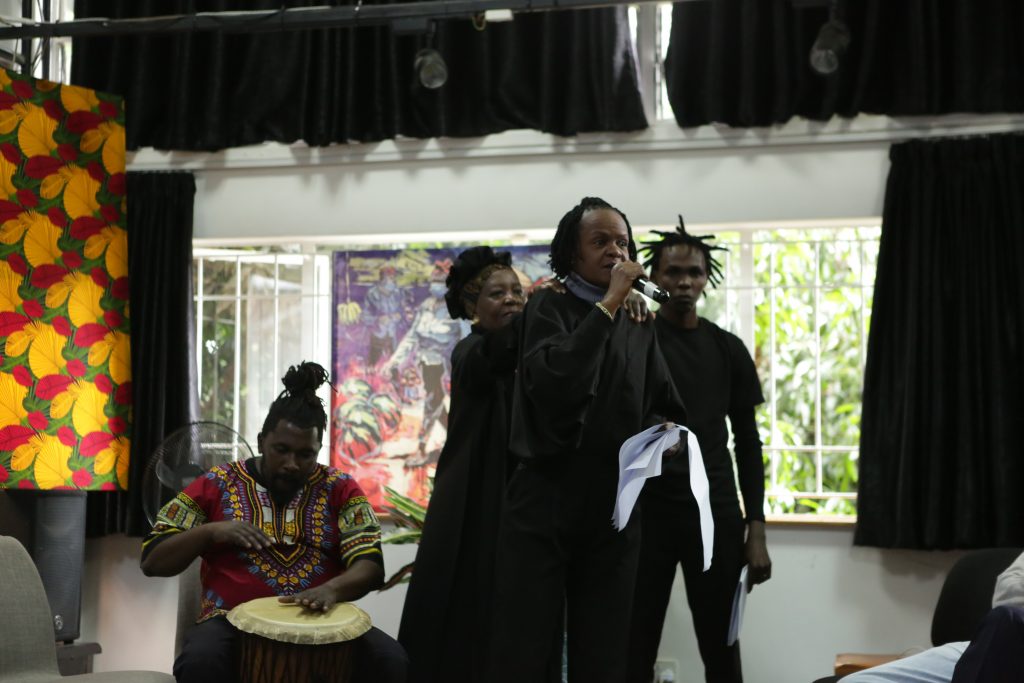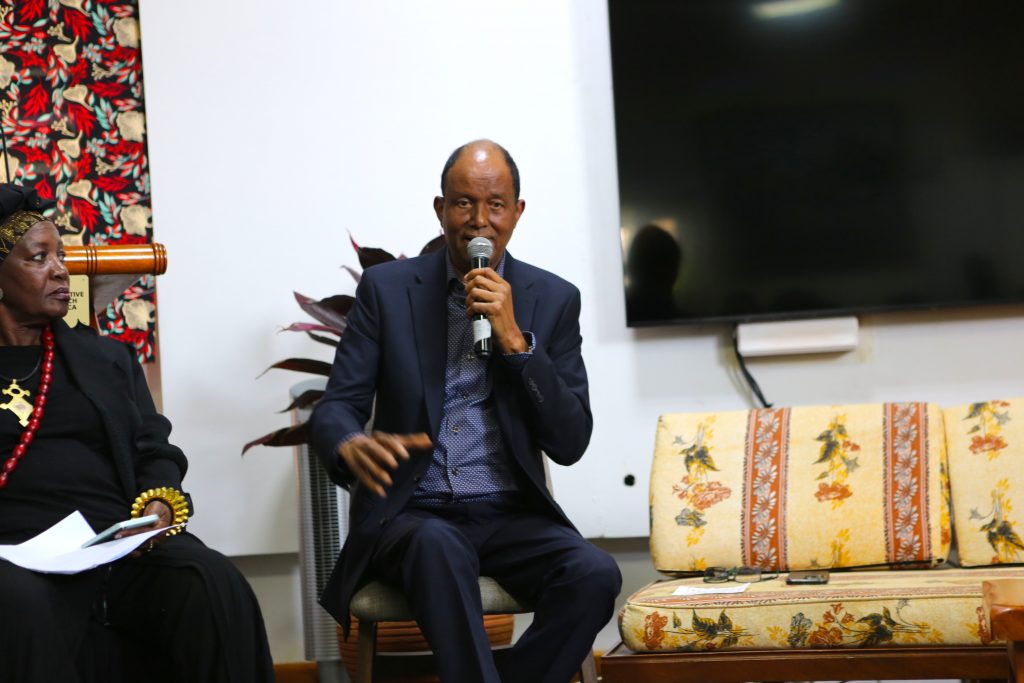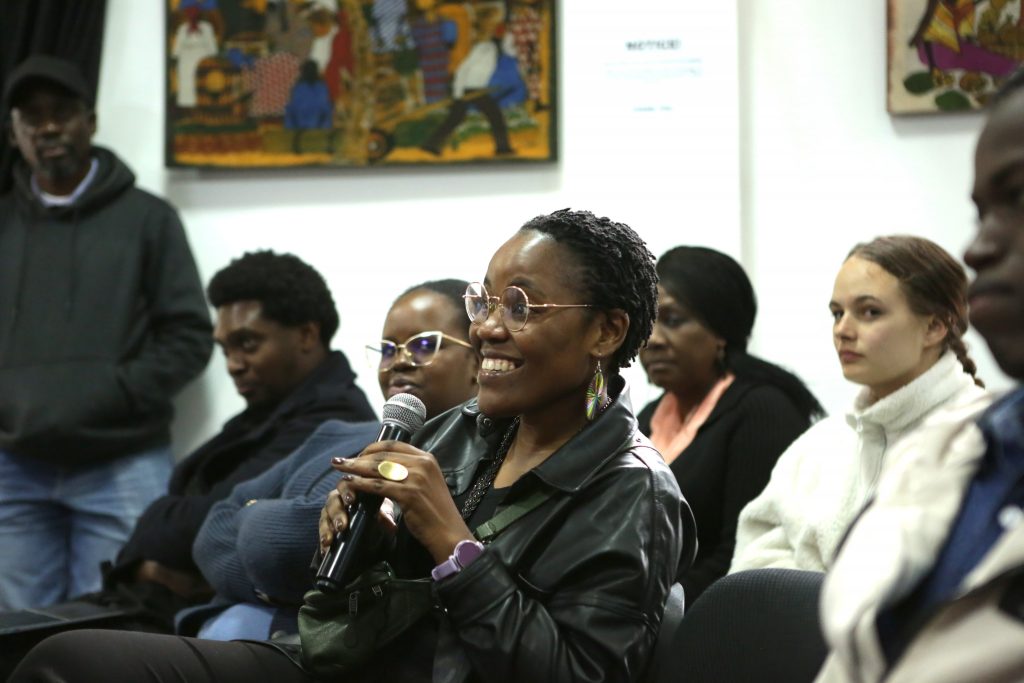On 5 July 2025, the Rift Valley Forum brought together scholars, authors, activists and politicians to celebrate Ngũgĩ’s literary brilliance, political courage and enduring influence: A tribute to a towering figure whose voice empowered generations. The session drew more than 65 participants in person and 38 online, underscoring the continued public interest in Ngũgĩ’s intellectual and political legacy. The event was convened in collaboration with the British Institute in Eastern Africa (BIEA), The French Institute for Research in Africa (IFRA), Twaweza Communications and Cheche Bookshop.
Memory, language and resistance
Poet–playwright Sitawa Namwalie and her ensemble opened with Names of the Dead, a performance in English, Swahili and Sheng that honoured fallen freedom fighters and framed memory as a form of resistance, an echo of Ngũgĩ’s lifelong insistence on centring African languages and lived histories.

Reflections from the panel
Yusuf Hassan, Member of Parliament and long‑time ally of Ngũgĩ, recalled their shared period in exile and involvement in the December 12 Movement. He noted that Ngũgĩ’s critique of post‑independence leadership remains relevant to current debates in Kenya.

Mohamed Amin Abdishukri, journalist, writer and socio‑political commentator, highlighted a persistent question in Ngũgĩ’s essays: ‘For whom do I write?’, a challenge to make knowledge accessible beyond elite circles. He linked this ethic to recent youth‑led mobilisation in Kenya, arguing that informed citizens, not ‘vibes’, drove last year’s large turnouts.
Prof Kimani Njogu, linguist and Director of Twaweza Communications, stressed language choice as an instrument of democratisation and social justice. He urged participants to use the ‘linguistic switches’ available to them, moving between languages as context demands and reminded the audience that Ngũgĩ rejected hierarchies that privilege one language over others, ‘Ngũgĩ’ resisted monolingualism, he celebrated multilingualism.’
Returning to the themes of education and identity, Sitawa Namwalie described first encountering Ngũgĩ’s work after studying science at the University of Nairobi. She said Decolonising the Mind ‘gave me back my vision’ and offered a template for making sense of the colonial legacies embedded in Kenya’s education system.
What participants took away
Audience reflections underscored the Forum’s role as a space where research, policy and lived experience meet on equal terms. Dr Duduzile Ndlovu appreciated that academics and artists shared one platform ‘destroying those hierarchies between what knowledge is important and isn’t’.
Student Mickie Muchilwa left asking: ‘Who is our science for? Who is our writing for?’—a call to democratize education and reconnect scholarship to local histories and publics.
Civil society leader Irũngũ Houghton reflected on the value of convening beyond online echo chambers: sustaining freedom of expression and independent thought depends on institutions that bring diverse groups into face‑to‑face conversation on strategic themes, something the Forum is designed to do.

Why Ngũgĩ still matters
Across interventions, speakers returned to three linked themes: memory sustains resistance; language is central to political and cultural freedom; and scholarship has greatest impact when it reaches everyday citizens, not only scholars. These are threads that run through Ngũgĩ’s fiction, essays and public life and that continue to animate debate in Kenya today.
Other resources from the event
Event overview & background: (Pre‑event page) https://riftvalley.net/events/writing-not-to-interpret-but-to-change-the-world-reflecting-on-the-politics-of-prof-ngugis-writing/
Watch or listen
Highlight video
Full recording (from the hybrid Zoom session)
Audio on SoundCloud



